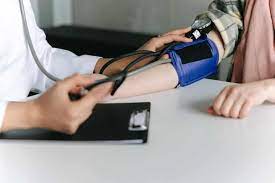
Transforming Cardiovascular Care: Dr.Hari Saini’s Perspective on Cardiovascular Diseases in the Era of Precision Medicine
In the rapidly evolving landscape of cardiovascular medicine, the emergence of precision medicine heralds a paradigm shift in the prevention, diagnosis, and treatment of cardiovascular diseases (CVDs). Dr Hari Saini, a distinguished cardiologist and visionary leader in the field, offers invaluable insights into the transformative potential of precision medicine in reshaping the approach to CVDs, empowering clinicians and patients alike with personalized strategies tailored to individual needs and genetic makeup.
Dr. Saini’s journey into the realm of precision medicine began with a profound recognition of the heterogeneity of CVDs and their multifactorial etiology, encompassing genetic predispositions, environmental exposures, lifestyle factors, and comorbid conditions. Over the years, he has witnessed the limitations of one-size-fits-all approaches in cardiovascular care and the pressing need for personalized interventions that address the unique complexities of each patient’s cardiovascular health.
One of the fundamental pillars of precision medicine in CVDs is the integration of genetic insights into risk assessment, disease stratification, and treatment selection. Dr. Saini emphasizes the importance of genetic testing and genomic profiling in identifying inherited cardiovascular conditions, such as familial hypercholesterolemia, hypertrophic cardiomyopathy, and arrhythmogenic disorders, enabling early detection and targeted interventions to mitigate risks and optimize outcomes.
Furthermore, Dr Hari Saini highlights the transformative potential of pharmacogenomics in tailoring medication regimens to individual genetic profiles, optimizing drug efficacy while minimizing adverse effects and drug interactions. By analyzing genetic variants associated with drug metabolism, response, and toxicity, clinicians can customize treatment strategies and optimize therapeutic outcomes for patients with CVDs, paving the way for precision pharmacotherapy in cardiovascular care.
In addition to genetic insights, Dr.Hari Saini underscores the importance of leveraging advanced imaging modalities, biomarker analysis, and digital health technologies to generate comprehensive phenotypic profiles of patients with CVDs. Through non-invasive imaging techniques such as cardiac MRI, CT angiography, and molecular imaging, clinicians can visualize cardiac anatomy, assess myocardial function, and identify vulnerable plaques, guiding treatment decisions and monitoring disease progression with unprecedented precision.
Moreover, Dr. Saini advocates for the integration of real-world data, artificial intelligence (AI), and machine learning algorithms in cardiovascular risk prediction, prognostication, and clinical decision support. By analyzing vast datasets encompassing clinical, genetic, environmental, and lifestyle factors, AI-driven models can identify hidden patterns, stratify patient risk, and personalize treatment recommendations, revolutionizing the delivery of precision medicine in CVDs.
However, Dr. Saini acknowledges the challenges and limitations of precision medicine in CVDs, including issues related to data privacy, regulatory oversight, and equitable access to genetic testing and advanced technologies. He emphasizes the importance of ethical considerations, patient-centered care, and interdisciplinary collaboration in navigating the complexities of precision medicine and ensuring its responsible and equitable implementation in clinical practice.
In conclusion, Dr Hari Saini perspective on cardiovascular diseases in the era of precision medicine offers a glimpse into a future where personalized interventions and targeted therapies transform the landscape of cardiovascular care. Through his visionary leadership, commitment to innovation, and unwavering dedication to patient-centered excellence, he continues to shape the trajectory of precision medicine, offering hope and healing to individuals affected by CVDs and paving the way for a healthier, more resilient future.